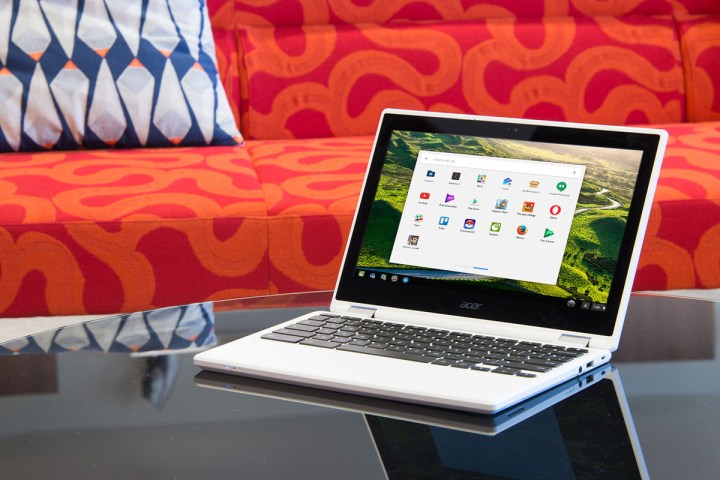
While many Chromebooks will eventually be able to run Android apps, some new research is indicating that not all of them will provide the same experience. Specifically, Chromebooks built around ARM processors will provide better Android app performance than the generally faster Chromebooks based on Intel processors.
The information comes via Shrout Research, which tested the performance of Android apps on two Acer Chromebooks, the R13 and the R11, which differ primarily in which processor is utilized. The R13 uses the Mediatek M81732C ARM processor, while the R11 uses the Intel Celeron N3060 CPU. A variety of Android apps were downloaded from the Google Play Store and then their performance tested in terms of startup time, stability, and battery life.
According to the tests, the ARM-based R13 provided a consistently “good” or “very good” experience on every tested app. The Intel-based R11, however, had a few apps that provided “poor” or “very bad” experiences, with some stuttering, long load times, and general instability on even more apps.
In addition, the R13 was more power-efficient when running Android apps. On average, 11.5 percent power savings were realized by using an ARM versus an Intel processor.
These results should come as no surprise, given that Android apps are written and optimized for ARM processors. Running them on Intel-based systems, therefore, provides a wider range of functionality for Chromebook users but creates some performance issues.
Generally speaking, Intel-based Chromebooks provide superior Chrome OS performance. But they do fall a bit behind when running the full range of Android apps, something that those still waiting for Android support should keep in mind.



